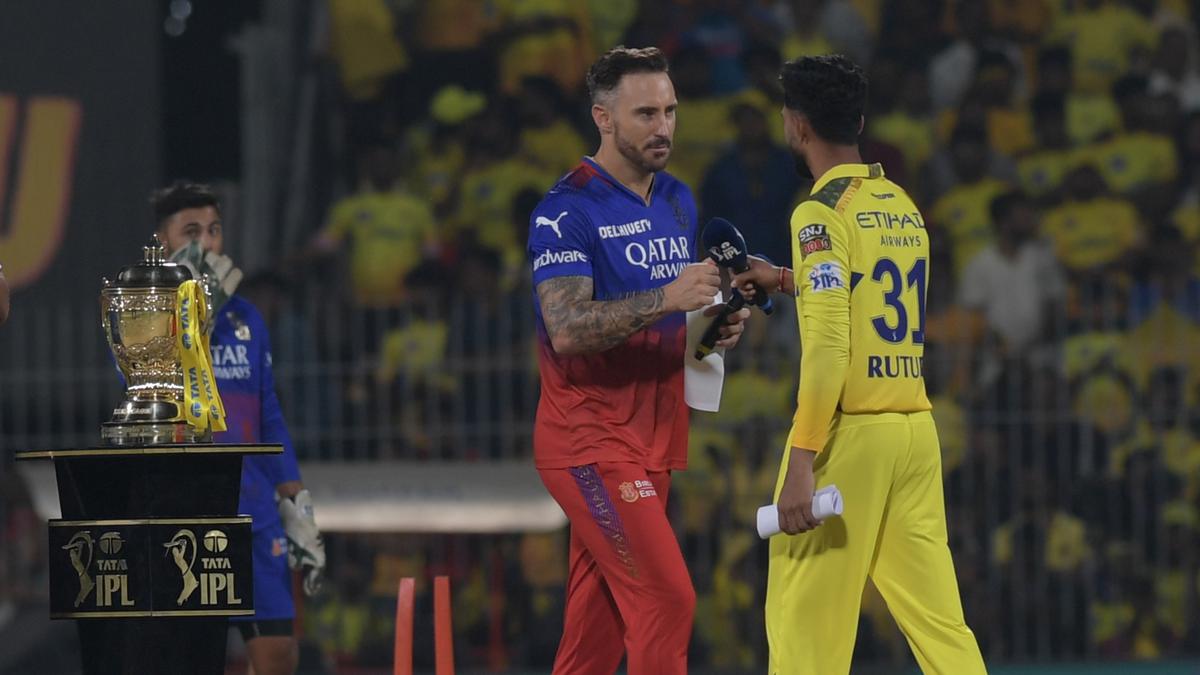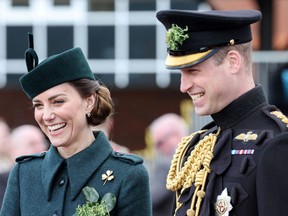[ad_1]
“It feels like 9/11 all over again.”
That’s what Natasha Ali, the Muslim spiritual care provider at the University of Manitoba, said about the effect of the war in Gaza on Muslims in the province.
“Many Muslims feel the underlying message in the media is that we are all terrorists, a danger to society,” she said.

The Free Press reached out to Muslim leaders and others to ask about how members of the community are coping with the war in Gaza emotionally, psychologically and spiritually — and how their community is helping them deal with the situation.
For Sheik Ammar Khatib, director of education and religious affairs for the Manitoba Islamic Association, it is “a very difficult and challenging time for the community. Many feel helpless and hopeless, anxious and grieving.”
This includes some of the province’s estimated 1,000 Palestinians, some of whom have family and friends in Gaza. One man is reported to have had 30 relatives die in the war.
What makes it harder is many Muslims are worried to talk about the situation with their non-Muslim friends, neighbours and co-workers. “They are afraid of being seen as supporting terrorism,” if they speak up for people in Gaza, he said.
Khatib encourages people to “put their trust in God, to remain positive, to keep praying.” He also tells them to remember they are called to “make the world a better place” by speaking up for peace and justice, and by never losing hope.
“Our job is to remind people to put their trust in God, to put their hope in him, and to act in peaceful ways, especially when protesting. They should never attack others, not in any way. We are all brothers and sisters in humanity. We need to support each other,” he said.
Sheik Ismael Mukhtar, editor of Manitoba Muslim, called the conflict stressful and traumatic.
“It’s very hard to watch children dying, mothers crying, buildings completely destroyed, people buried under the rubble. It deeply affects me,” he said, adding that the grand mosque on Waverley Street has sharing circles and support groups.
Mukhtar tells people to have hope and be patient. He also advises against people spending too much time on social media to spare their mental health.
While concerned about the loss of life in Gaza, he grieves every death in that region.
“The loss of every human life makes me sad: Jewish, Muslim or Christian, or any other,” he said. “Why can’t we as human beings find a way to live together, rather than destroy one another?”
Incidents of Islamophobia in Winnipeg, together with rising antisemitism, are on his mind.
“This is not the Canada we want,” Mukhtar said. “We want people to live together in peace, to be able to go about their lives peacefully, not worried about being targeted for who they are. We should all be in favour of peace for all humanity. That is something we all can promote.”
Izzeddin Hawamda is a teacher, storyteller and doctoral candidate in peace and conflict studies. He is a Palestinian who grew up in Nablus in the West Bank.
“I am a writer. I am someone who likes to use words to give my story a face. But at a time like this, words escape me as I watch what is happening in Gaza,” he said. “I am speechless.”
“We need to let people know this conflict isn’t just about numbers. It has many faces. Every person impacted has a home, dreams, and ambitions.”– Izzeddin Hawamda, teacher and doctoral candidate in peace and conflict studies
While his own family is not in Gaza, he has many relatives in the West Bank who live in anxiety. “We need to let people know this conflict isn’t just about numbers,” he said. “It has many faces. Every person impacted has a home, dreams, and ambitions.”
As someone who is dedicated to telling stories about Palestinians, and peaceful ways to resolve the conflict in the region, he knows how hard it sometimes can be for those stories to be heard.
“But it is even harder now,” he said. “People are wary about talking about the subject. I’ve had presentations cancelled or postponed. People tell me it doesn’t feel like the right time now to talk about Palestine. There is fear and anxiety if we tell our story.”
A big concern for Hawamda right now is mental health — for his Palestinian friends and himself.
“I am constantly worrying about my family in the West Bank,” he said. “I have friends with family in Gaza and I can’t imagine the anxiety and uncertainty they experience when they are unable to contact them.”
He also often feels alone. “I think my acquaintances don’t know what to say to me,” he said. “Only a few have reached out.”
His advice to non-Muslim Winnipeggers is to reach out to people they know who are Muslim or Palestinian and ask how they are doing.
“Invite them to tell their story. Let them talk,” he said.
Tasneem Vali, a volunteer with the Manitoba Islamic Association outreach committee, said faith is an important way to deal with this situation.
“When faith is strong, we are resilient,” she said. “We believe in God, and that God has a plan, even though we might not understand it at this point.”
She recalled a verse in the Qur’an that talks about how humans can’t know what God has planned for different situations.
“We can never comprehend the whole picture. Our faith can give us peace, help us to be calm. If you don’t rely on God, you can feel helpless and become despondent.”
Vali said: “Everything in Islam must be connected to helpful action. It’s not just about praying, but about doing something to help, whether that is reaching out to those who grieve, providing them with meals or donating for relief efforts.”
She said doing nothing actually makes dealing with the war more difficult.
In her role of providing spiritual care to the 3,000 or so Muslim students at the University of Manitoba, Natasha Ali, who is also a registered counselling psychologist, knows that many are stressed out.
If they speak up about the war in Gaza, “they are worried about being misinterpreted, that if they post something on social media, they will be seen as supporting Hamas, as supporting terrorism, and then face heavy consequences because of that. We feel like we are being branded as evil people who only want to kill,” she said.
“I understand and acknowledge the pain of Jewish students, the terrible things that have happened in Israel, but the school also needs to acknowledge the pain of Muslim students, all the terrible things that are happening in Gaza.”– Natasha Ali, registered counselling psychologist and spiritual care provider at U of M Spiritual Care and Multi-Faith Centre
What adds to the anxiety is how the university immediately put out a statement condemning the attack by Hamas and the taking of hostages, but has so far failed to do something similar about the plight of people in Gaza — “even though it is affecting a lot of Muslim students,” Ali said.
“I understand and acknowledge the pain of Jewish students, the terrible things that have happened in Israel, but the school also needs to acknowledge the pain of Muslim students, all the terrible things that are happening in Gaza,” she said.
Many Muslim students have told her they don’t feel safe at the university. They feel hopeless and depressed and worry about sharing their opinions.
“They’re struggling with guilt, helplessness, horror, anger. They feel invisible, like their pain doesn’t matter,” she said.
Together with other community leaders, Ali tries to offer coping skills and help them find ways to feel safe.
“We tell them to rely on their faith, to use it to build up their patience, to use it as a way to fight back against hopelessness. God will help us in the end.”
Raghad AlKaraki, 21, is a social work student at the University of Manitoba. The Palestinian woman has been in Canada for five years and wears a hijab.
“It’s been very, very hard,” she said about this time.
In her classes, AlKaraki is “learning to speak up for those who are oppressed and experiencing injustice,” she said. “But I don’t feel I can speak up on campus for those who are facing oppression and injustice in Palestine. The university has not created a safe space for me to talk about it.”
AlKaraki said she is afraid she will be seen “as supporting terrorism. Some people equate supporting Palestine with supporting terrorism.”
Because she wears a hijab, she has been called a terrorist at the university. “I don’t feel safe on campus. I am always checking my surroundings. I used to spend all day at the university. Now I just go to my classes and then go home,” she said.
After the Oct. 7 attack, her parents drove her to school instead of letting her take the bus. Although she is back to taking the bus, she always travels with a companion and makes sure she is with another person while walking on campus.
“All I want is for (the U of M) to address both antisemitism and Islamophobia,” she said. “Speak out against both, don’t tolerate either of them.”
She finds solace in going to the mosque or retreating to the prayer room at the university to take an emotional break.
“It’s good to be with people who understand how I am feeling.”
faith@freepress.mb.ca
The Free Press is committed to covering faith in Manitoba. If you appreciate that coverage, help us do more! Your contribution of $10, $25 or more will allow us to deepen our reporting about faith in the province. Thanks!
BECOME A FAITH JOURNALISM SUPPORTER
Click here to learn more about the project.

John Longhurst
Faith reporter
John Longhurst has been writing for Winnipeg’s faith pages since 2003. He also writes for Religion News Service in the U.S., and blogs about the media, marketing and communications at Making the News.
Maqvi News #Maqvi #Maqvinews #Maqvi_news #Maqvi#News #info@maqvi.com
[ad_2]
Source link















































